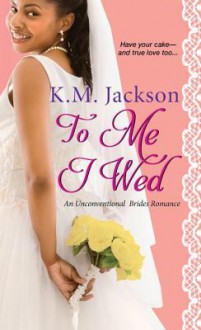
Thanks to NetGalley and to Vintage for offering me an ARC copy of this collection that I voluntarily chose to review.
I read Moshfegh’s novel Eileen (nominated for the Booker Prize, read my review here), admired it (perhaps liking it is not the right way to describe it) and I was curious to read more by the same author. When I saw this book on offer I took the chance.
This collection of short-stories does reinforce some of the thoughts I had about Eileen. Ottessa Moshfegh can write, for sure. If the stories in this collection have anything in common, apart from the quality of the writing, is the type of characters. They all (or most) are lonely, only a few are likeable (they can all be liked, but that’s not what I mean) and easy to relate to, they often have disgusting habits (although I suspect that if our lives were put under a microscope and every last little detail was looked at and written down we might not look very pretty either), and are lost. The characters made me think of Sherwood Anderson and Flannery O’Connor (not the style of writing, though): those people who don’t seem to fit anywhere and are utterly peculiar, although many of the characters in the stories are only peculiar because we get a peep into their brains. One gets the sense that they would appear pretty normal from the outside. A man who lives alone at home, watching telly, and is friendly with the girl living next door. A Maths’ teacher, divorced, who might cheat on the students’ exams. A Yale graduate, who does not know what to do with his life, spends too much money on clothes and gets infatuated with a woman he only met briefly once. A couple of children, twins, telling each other stories. An aspiring actor who can’t get any acting jobs.
Of course, there are other things we discover. The man seems to have a strange interest in the girl next door. The Maths’ teacher drinks so much she keeps a sleeping bag at the school (well, it’s really a room in a church) so she can lie down between classes. The graduate has to sell his clothes in a desperate attempt to get the attention of the woman he is mad about. One of the twins is planning to kill a man. The aspiring actor doesn’t know who Scorsese is (or much about anything) and can’t even kiss a girl on camera. The author digs deep into the characters’ façade and pulls a distorted mirror to them, that like in caricature drawings, emphasises the weirdest characteristics rather than what might make them seem ‘normal’ because normal is a construct after all.
Not many of these stories would fit comfortably into standard definitions of what a short story is supposed to be like. If the author pushes the boundaries with her choice of characters and her descriptions (a lot of them have acne that they squeeze, they are sick or make themselves sick, their bodily functions are described in detail, and some are … well, let’s say ‘alternative’) she does the same with the stories. Quite a few of them seem to be slices of life rather than stories with a beginning, a middle and an end. There are some that have more of a conventional ending (even if it is open ended), but plenty do not and it is up to the reader to decide what, if anything, to make of them. If I had to choose and extract something from the stories (not a lesson as such, but a reflection of sorts) is that perhaps the only characters who end up in a better place or experiencing some sort of happiness (or contentment) are those who don’t try to live up to anybody’s expectations and accept what might appear to be strange alliances and relationships. But perhaps it is just that those are the stories that have stuck more in my head.
Reading the comments, this collection, much like Eileen, is a marmite book. Some people really love it and some hate it with a passion. As I said, the writing is excellent, but you’ll need to have a strong stomach and not mind detailed descriptions of bodily functions and less than flattering individuals (nobody is tall, dark and handsome here, although some characters believe they are). Although many of the stories might feel dispiriting and depressing, this depends on the point of view of the reader and there are very witty lines and funny (but dark) moments.
Here some examples:
‘Oh, okay, there were a few fine times. One day I went to the park and watched a squirrel run up a tree. A cloud flew around the sky.’
‘I had a thing about fat people. It was the same thing I had about skinny people: I hated their guts.’
‘Her face was pinched, as though she’d just smelled someone farting. It was that look of revulsion that awoke something in me. She made me want to be a better man.’
In sum, I wouldn’t dare to recommend this book to everybody, by a long stretch, but if you want to check great writing, have a strong stomach, and don’t mind strange and not always likeable characters and unconventional stories, dare to read on. It will be an utterly unique experience.


 Log in with Facebook
Log in with Facebook 









